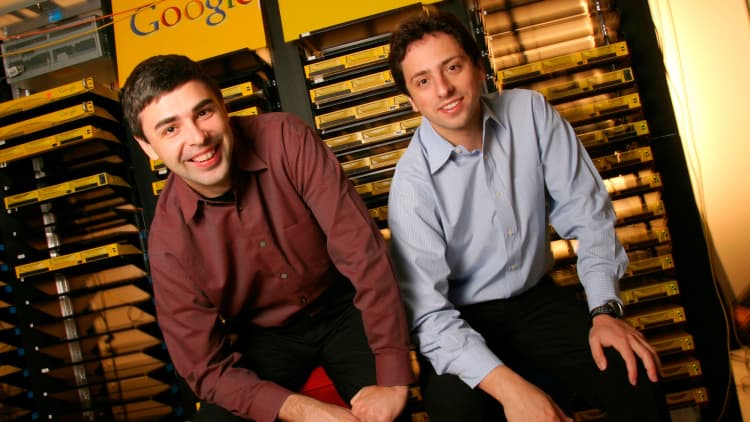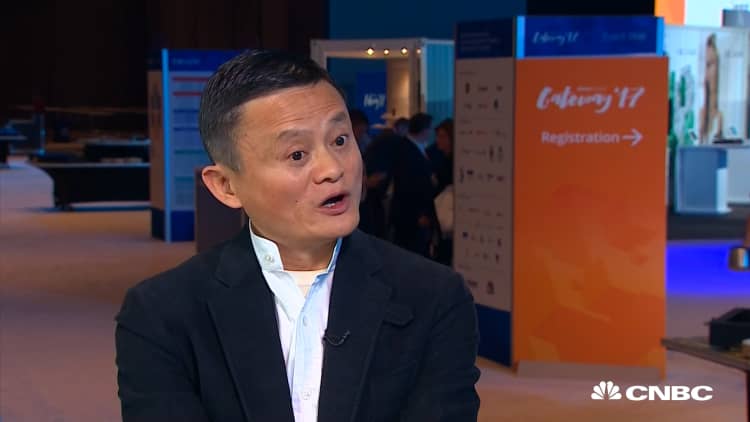As novel coronavirus COVID-19 wreaks havoc on the global economy, Alibaba finds itself in a familiar position.
In a quarterly earnings call in February, Alibaba CEO Daniel Zhang said the economic effects of COVID-19 "will present near-term challenges" to Alibaba's business, "but at the same time, we will see opportunities created by the forces of change."
Of course, Zhang also focused on Alibaba's "responsibility to our community," saying the company "took every effort to protect the health and safety of our employees." (The Alibaba Foundation and the Jack Ma Foundation have both donated medical supplies around the world.)
But even in a dire situation, Alibaba can see opportunity, not only because people are now more reliant than ever on online services, but also because it was in fact another epidemic — that of Severe Acute Respiratory Syndrome (or SARS, which is also a kind of coronavirus) — that put the company on its path to becoming a $470 billion e-commerce behemoth.
A pandemic in China
Alibaba was founded in 1999 as an online, B2B marketplace aimed at Chinese firms looking to sell their goods to other businesses around the world. Three years later, the company had just 400 employees (today it has over 100,000), and turned its first annual profit in 2002.
But in the fall of that year, a then-novel coronavirus outbreak began to take hold in southern China. SARS, also known as SARS-associated coronavirus, or SARS-CoV, would soon spread across the country and the world.
As SARS turned into a pandemic in 2003, it presented a major challenge to China's economy — including Alibaba's nascent business — as the country's manufacturing sector suffered from factory closures, with workers staying home, while retail sales also dropped significantly with consumers reluctant to venture out to stores.
Then in May 2003, an Alibaba employee contracted SARS (she would ultimately survive). The company was forced to quarantine its entire staff in their homes.
It seemed at the time that disaster had struck the young business. The quarantine came just as Alibaba was preparing to launch Taobao, an online marketplace for consumers that Ma hoped would compete with eBay in China.

"When SARS happened, it was a big hit for the company because we didn't know if our business will actually be around tomorrow. There were so many uncertainties," Annie Xu, who has worked at Alibaba since 2000 and is currently the head of human resources in North America, said in 2019.
The SARS outbreak appeared to be hitting Alibaba at the worst possible time, threatening to halt the young company's early growth and delay the launch of Taobao.
However, what looked like a worst-case scenario turned out to have a silver lining.
A dire situation becomes a watershed moment
First, Ma's decision to send his workers home helped prevent the spread of the disease at Alibaba, and the company founder encouraged his staff to take their work with them. Workers took their desktop computers home to ensure Alibaba's business-to-business e-commerce platform remained up and running.
Employees worked 12-hour days, with the company's customer service hotline redirecting to workers' homes during the quarantine.
Meanwhile, a team of roughly half a dozen executives and developers holed up in Ma's own Hangzhou apartment to finish building the consumer-focused Taobao website, which was scheduled to launch within just a week from the start of the quarantine. The team did handstands during work breaks to increase blood-flow and maintain energy levels.
Alibaba launched the Taobao site on time, on May 10, 2003.
By that point, people across the country were staying home from work out of fear of contracting SARS. That self-imposed quarantine actually became a watershed moment for China's economy — particularly for internet companies, like Alibaba — as Chinese consumers who were stuck at home started turning to the internet to order items.
In the 2016 book "Alibaba: The House That Jack Ma Built," author Duncan Clark writes that the SARS outbreak "came to represent the turning point when the Internet emerged as a truly mass medium in China."
Alibaba benefited from the internet becoming increasingly necessary for doing business during the SARS outbreak, as businesses and consumers alike were driven online to buy and sell goods.
"Crucially for Alibaba, SARS convinced millions of people, afraid to go outside, to try shopping online instead," Clark writes in his book. (Another beneficiary of this shift in consumer habits was Chinese e-commerce company JD.com, which launched its consumer site in 2004 and is now one of the world's leading online retailers, worth $60 billion.)
Despite the fact that eBay had launched in China a year earlier, and invested over $250 million in its business in that country, Taobao quickly became the American company's chief competitor in what was then a billion-dollar market. Ma drew customers away from eBay by allowing new users to sell their goods on Taobao for free for three years.
By 2006, Taobao had a larger share of China's online auction market than eBay, and the American company decided to pull out of the country altogether.
Today, Taobao has over 600 million monthly users, and it's helped turn Alibaba into one of the world's largest e-commerce companies, with over $56 billion in annual revenue.
Of course, the current global pandemic is of a scale not seen in modern history, and global markets are taking a significant hit as a result, while the 2002-2003 SARS epidemic left them relatively unscathed. And the internet is no longer nascent.
Alibaba has already taken an economic hit, with the company's stock price down nearly 12% since the start of 2020. Current CEO Zhang (who took over for MA in September) warned last month that coronavirus could be a drag on the company's e-commerce revenue as the pandemic slows the supply chains and delivery times for Alibaba's online business.
But Zhang noted in Alibaba's quarterly earnings call that the company is again seeing "more and more consumers getting comfortable with taking care of their daily living needs and work requirements through digital means.
"We are confident in the ongoing digitization of China's economy and society, and are ready to seize the opportunity to build the foundation for the long-term growth of Alibaba's digital economy," Zhang said.
Check out: The best credit cards of 2020 could earn you over $1,000 in 5 years
Don't miss:
A Bill Gates speech inspired Zoom founder to start an internet business—now he's a billionaire
Like this story? Subscribe to CNBC Make It on YouTube!


